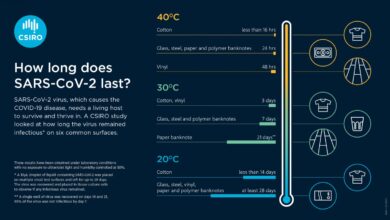Understanding Zegerid: Uses, Benefits, and Everything You Need to Know

Zegerid is a well-known medication in the field of gastrointestinal treatments, particularly for those dealing with acid-related stomach issues. Its unique formulation and versatile application make it a go-to option for many individuals seeking relief. But what exactly is Zegerid, and why has it gained such widespread popularity? This article dives deep into its uses, benefits, and more, ensuring you have a comprehensive understanding of this medicine.
What is Zegerid?
Zegerid is a proton pump inhibitor (PPI) that reduces the amount of acid produced in the stomach. It is a combination of omeprazole and sodium bicarbonate, which work together to address conditions like acid reflux and heartburn.
The Dual Formula Explained
- Omeprazole: This is the active ingredient in Zegerid that blocks the acid production in the stomach. It is a widely used PPI and is effective in treating a variety of acid-related conditions.
- Sodium Bicarbonate: This ingredient acts as an antacid, neutralizing stomach acid and allowing the omeprazole to work more effectively. Sodium bicarbonate also protects the medication from being broken down by stomach acid before it can do its job.
This combination ensures that Zegerid provides fast and lasting relief for people experiencing gastrointestinal discomfort.
Availability
Zegerid is available in two forms:
- Oral Capsules: These are easy to swallow and contain the powdered formula.
- Powder for Oral Suspension: This form is often preferred for individuals who struggle with swallowing capsules.
Common Uses of Zegerid
Zegerid is primarily prescribed to treat conditions related to excessive stomach acid production.
1. Gastroesophageal Reflux Disease (GERD)
GERD is a chronic condition where stomach acid frequently flows back into the esophagus, causing irritation. Zegerid is highly effective in reducing acid levels, thus relieving symptoms like heartburn, regurgitation, and a sore throat.
2. Erosive Esophagitis
In severe cases of acid reflux, the lining of the esophagus can become inflamed or eroded. Zegerid not only provides symptomatic relief but also aids in healing the damaged tissue.
3. Ulcers
Zegerid is often prescribed for treating and preventing ulcers in the stomach and small intestine. By controlling stomach acid, it allows ulcers to heal and reduces the risk of recurrence.
4. Zollinger-Ellison Syndrome
This rare condition involves tumors in the pancreas or duodenum that cause excessive stomach acid production. Zegerid helps manage the acid levels, providing much-needed relief to patients.
Benefits of Using Zegerid
When compared to other PPIs, Zegerid stands out for several reasons.
1. Rapid Relief
The inclusion of sodium bicarbonate ensures quicker action than many other PPIs. It starts neutralizing acid immediately, providing almost instant relief from discomfort.
2. All-Day Coverage
Zegerid is formulated to offer 24-hour protection, making it a convenient option for those with chronic conditions like GERD. A single dose can prevent acid flare-ups throughout the day and night.
3. Dual Action
While many medications focus solely on acid suppression, Zegerid also tackles the immediate discomfort caused by excess acid with its sodium bicarbonate component.
4. Healing Properties
Beyond symptomatic relief, Zegerid actively promotes healing in cases of erosive esophagitis and ulcers, ensuring long-term benefits for users.
Proper Usage and Dosage Guidelines
As with any medication, using Zegerid correctly is crucial for its effectiveness and to avoid side effects.
1. When and How to Take It
- Empty Stomach: Zegerid should be taken at least one hour before a meal for optimal absorption.
- Water Only: Avoid taking it with other beverages like milk or juice. Water ensures proper dissolution and absorption.
- Timing: A common schedule is once daily, preferably in the morning. For severe cases, your doctor may recommend a second dose.
2. Dosage Strengths
Zegerid comes in different strengths, such as 20 mg/1100 mg and 40 mg/1100 mg (omeprazole/sodium bicarbonate). Your doctor will determine the appropriate dose based on your condition.
3. Duration of Treatment
While Zegerid can provide immediate relief, it’s typically used as part of a treatment plan spanning 2-8 weeks, depending on the condition. Long-term use should be monitored by a healthcare provider.
Possible Side Effects
Like all medications, Zegerid may cause side effects in some individuals.
Common Side Effects
- Headache
- Nausea or Vomiting
- Diarrhea
- Stomach Pain
These symptoms are usually mild and tend to resolve on their own.
Rare but Serious Side Effects
- Allergic Reactions: Symptoms like swelling, itching, or severe dizziness should prompt immediate medical attention.
- Bone Fractures: Long-term use of PPIs like Zegerid has been linked to an increased risk of fractures.
- Low Magnesium Levels: Extended usage may lead to deficiencies, resulting in symptoms like muscle cramps or irregular heartbeat.
When to Contact a Doctor
If you experience persistent side effects or signs of an allergic reaction, consult your doctor promptly.
Precautions and Warnings
Before starting Zegerid, it’s essential to be aware of specific precautions.
1. Existing Health Conditions
Inform your doctor if you have:
- Liver disease
- Kidney problems
- A history of low magnesium levels
2. Medication Interactions
Zegerid may interact with certain drugs, including:
- Blood thinners like warfarin
- Antifungal medications
- Certain antibiotics
Always provide your doctor with a list of medications and supplements you are currently taking.
3. Pregnancy and Breastfeeding
Zegerid is generally considered safe during pregnancy but should only be used under medical supervision. Breastfeeding mothers should consult a doctor to determine if it’s suitable for them.
Zegerid vs. Other PPIs
With so many PPIs on the market, how does Zegerid compare?
Faster Onset
Unlike other PPIs, which may take hours to start working, Zegerid offers immediate relief thanks to its sodium bicarbonate component.
Versatility
Zegerid’s dual-action formula makes it suitable for both acute and long-term use, whereas some PPIs are better suited for chronic conditions.
Cost Considerations
Zegerid may be more expensive than generic PPIs, but its unique benefits often justify the price for those in need of rapid and comprehensive relief.
Final Thoughts: Is Zegerid Right for You?
Zegerid is a trusted medication for addressing a variety of acid-related conditions, from heartburn to more severe ailments like ulcers and GERD. Its dual-action formula and rapid onset make it a standout choice among PPIs.
However, as with any medication, it’s essential to consult your healthcare provider to determine if Zegerid aligns with your health needs. With proper usage and precautions, Zegerid can offer relief and healing, helping you regain comfort and confidence in your daily life.
Whether you’re battling occasional heartburn or managing a chronic condition, Zegerid’s proven track record makes it a valuable ally in gastrointestinal health.



